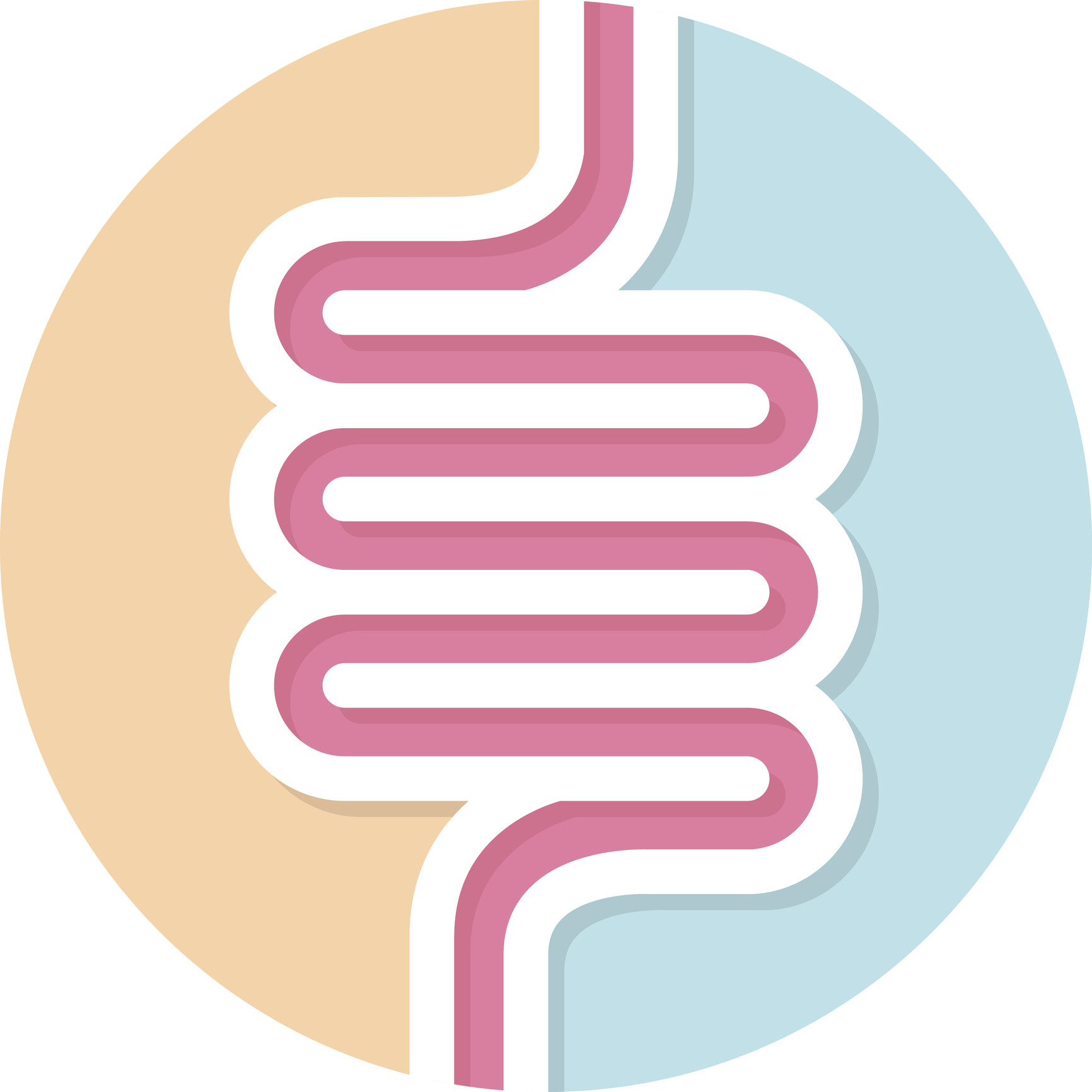
Daily cup of coffee may prevent afib recurrence

Gene-editing therapy lowers harmful blood fats in early study

What is EMDR therapy, and who can it help?

GLP-1 drugs versus bariatric surgery for treating obesity

Trying to lose weight? Be careful not to lose muscle

Two dumbbells, three exercises, and 10 minutes

Easing the emotional burden of IBS

Modify your push-ups to meet your fitness level

What is long QT syndrome?

Stroke survivors may benefit from very low LDL levels
Digestive Health Archive
Articles
When You Visit Your Doctor - Gallstones
Gallstones
Questions to Discuss with Your Doctor:
- Do you have pain in the mid- or upper-right portion of your abdomen?
- Do fatty meals worsen the pain?
- Does the pain occur after eating?
- Do you have nausea, vomiting, or bloating?
- Does the pain ever go through to your back?
- Is the pain steady or intermittent?
- Have you had fevers?
- How long does it take for the pain to go away?
- Do you take any medications (for example, birth-control pills or hormone therapy)?
- Have you had any rapid weight loss?
- Have you noticed darkening of your urine or yellowing of the eyes?
Your Doctor Might Examine the Following Body Structures or Functions:
- Abdominal exam
Your Doctor Might Order the Following Lab Tests or Studies:
- Blood tests of liver function
- Complete blood count
- Abdominal ultrasound
- Cholescintigraphy (HIDA scan)
When You Visit Your Doctor - Gastroesophageal Reflux Disease (GERD)
Gastroesophageal Reflux Disease (GERD)
Questions to Discuss with Your Doctor:
- Do you get a burning sensation in your chest or throat after eating?
- Do you ever have a bitter or sour taste in your mouth?
- Do you ever have bloating or nausea after you eat?
- How often do you get these symptoms?
- What do you do to relieve the symptoms?
- Are the symptoms related to physical exertion?
- Are the symptoms worse when you are lying down or sitting up?
- Have you noticed any black stools?
- Do you have a persistent cough?
- Do you have a history of ulcer disease?
- Are you taking any medications, especially ones that can irritate the esophagus or stomach, such as aspirin, ibuprofen, naproxen or tetracycline?
- Do you drink alcohol or smoke?
- How soon after you eat at night do you go to bed?
- Have you tried any over-the-counter medications? If so, do they help?
Your Doctor Might Examine the Following Body Structures or Functions:
- Chest and lung exam
- Abdominal exam
Your Doctor Might Order the Following Lab Tests or Studies:
- Upper endoscopy (internal examination of the esophagus and stomach)
- pH probe (to assess the acid level in the esophagus and stomach)
- Manometry (to measure the pressure of the sphincter between the esophagus and the stomach)
- Stool testing for blood
- Complete blood cell count
When You Visit Your Doctor - Peptic Ulcer Disease
Peptic Ulcer Disease
Questions to Discuss with Your Doctor:
- Do you have diffuse or localized abdominal pain?
- Does the pain ever travel to the back or chest?
- Do you have nausea associated with the pain?
- Does eating make the pain better or worse?
- Do you have black or bloody stools?
- Do you ever vomit blood or material that looks like coffee grounds?
- Do you take any medications (for example, pain relievers)?
- Do you smoke cigarettes or drink alcohol?
- Do you drink caffeine-containing beverages?
- Have you ever been tested or treated for a bacteria called H. pylori that can infect the stomach lining?
- Do you have a family history of peptic ulcer disease?
Your Doctor Might Examine the Following Body Structures or Functions:
- Careful abdominal exam
- Rectal exam
Your Doctor Might Order the Following Lab Tests or Studies:
- Stool testing for blood
- Blood or breath test for the presence of H. pylori
- Upper endoscopy (internal examination of esophagus, stomach, and duodenum)
- Upper GI series
When You Visit Your Doctor - Irritable Bowel Syndrome (IBS)
Irritable Bowel Syndrome (IBS)
Questions to Discuss with Your Doctor:
- Do you have pain or cramping in the lower stomach?
- How often do you get the pain?
- Is the pain related to meals?
- Do you suffer from constipation and small bowel movements?
- Do you have diarrhea that alternates with constipation?
- Do you have frequent bloating and gas?
- Do you have a feeling of fullness in the rectum?
- Is there a family history of inflammatory bowel disease?
- Do you have a history of mental illness or depression?
- Are there any things causing unusual stress in your life?
- Please describe your diet in detail.
Your Doctor Might Examine the Following Body Structures or Functions:
- Careful abdominal exam
- Rectal exam
Your Doctor Might Order the Following Lab Tests or Studies:
- Stool testing for blood and cultures
- Conventional abdominal X-rays
- Endoscopy or sigmoidoscopy
- Barium enema
- Complete blood count and other blood tests
Diagnosing and treating irritable bowel syndrome
Irritable bowel syndrome (IBS) is a chronic disorder characterized by recurrent bouts of constipation, diarrhea, or both, as well as abdominal pain, bloating, and gas. IBS is a functional disorder, which means that it's not attributable, as far as we know, to any underlying disease process or structural abnormality. It's thought to involve various, often interacting, factors — infection, faulty brain-gut communication, heightened pain sensitivity, hormones, allergies, and emotional stress.
The good news is that IBS doesn't increase the risk for more serious conditions, such as ulcerative colitis or colon cancer. On the other hand, a disorder resulting in (at best) annoying and (at worst) debilitating and worrisome symptoms with no known cause can be difficult to diagnose and treat, not to mention live with. Managing IBS typically involves some trial and error, which can be challenging for patients and clinicians alike. Various tests or procedures may be ordered to rule out other conditions. Many diverse therapies, not all of them proven, are used in treating the symptoms, including antibiotics, antispasmodics, antidepressants, dietary changes, relaxation techniques, and psychotherapy, as well as drugs to relieve constipation and diarrhea.
Don’t tolerate food intolerance
Here's what to do when certain foods disagree with you.
Image: ChesiireCat/Thinkstock
You probably remember an occasion when you ate something that did not agree with you. But if your stomach issues have become severe and frequent, you might have a food intolerance.
"Food intolerances puzzle many older men, since foods they long enjoyed suddenly give them problems," says Evagelia Georgakilas, a registered dietitian and nutritionist with Harvard-affiliated Beth Israel Deaconess Medical Center. "They might tough it out and suffer in silence, but by identifying the problem foods, making adjustments in portion sizes, and switching out certain foods as needed, they can avoid painful and recurring digestive issues."
Modern acupuncture linked to constipation relief
It appears that electroacupuncture may be a treatment option for people with chronic severe functional constipation.
Is a heartburn drug hurting your health?
Long-term risks are associated with proton-pump inhibitors, but there are other options for treating acid reflux.
Image: Eranicle/ Thinkstock
Proton-pump inhibitors (PPIs), which reduce the amount of acid produced in the stomach, are so effective at treating heartburn and ulcers that they've been among the world's top-selling drugs for 25 years. Initially available only by prescription, PPIs, which include omeprazole (Prilosec), lansoprazole (Prevacid), and esomeprazole (Nexium), have been sold over the counter for several years. However, now that millions of people are taking PPIs, the drugs have been linked to an increasing number of health risks, such as fractures, kidney problems, vitamin B12 deficiency, low magnesium, and—most recently—dementia and heart attack.
"These studies—especially those suggesting a relationship to dementia and heart attack—are concerning," says Dr. Jacqueline Wolf, a gastroenterologist and associate professor of medicine at Harvard Medical School and author of A Woman's Guide to a Healthy Stomach: Taking Control of Your Digestive Health.

Daily cup of coffee may prevent afib recurrence

Gene-editing therapy lowers harmful blood fats in early study

What is EMDR therapy, and who can it help?

GLP-1 drugs versus bariatric surgery for treating obesity

Trying to lose weight? Be careful not to lose muscle

Two dumbbells, three exercises, and 10 minutes

Easing the emotional burden of IBS

Modify your push-ups to meet your fitness level

What is long QT syndrome?

Stroke survivors may benefit from very low LDL levels
Free Healthbeat Signup
Get the latest in health news delivered to your inbox!
Sign Up







